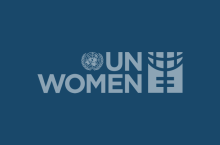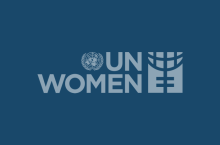We all know the data: women and girls remain the default providers of this essential labour, engaging in more than 2.5 times as many hours a day in unpaid care work than men. An estimated 80 per cent of paid domestic workers worldwide are also women, with 9 out of 10 of them working without social protection.
It is women living in poverty, migrant women, and women informal workers who shoulder the largest share of unpaid or under-paid care work.
These numbers are not just numbers. They reflect deep structural barriers that create unequal opportunities and outcomes for women and girls in education, in employment, in leadership and in financial security across their life.
They reflect a profound disconnect between what is essential for societies and economies to thrive and what is prioritized in policies and budgets.
We know that investing in robust care policies, quality care services, and basic time-saving care infrastructure is a triple win for individuals, for communities and for economies. These investments can simultaneously reduce women’s time and income poverty and enhance their labour market participation.
Evidence shows us that investing in care can increase the number of decent care jobs, potentially creating 300 million jobs by 2035.
Today, we are calling for care work to be valued as a public good, as skilled and essential work, and for quality care and support to be recognized as the basis for equal participation in society.
UN Women stands committed to working with you to transform care systems and to build thriving, equitable and sustainable economies and societies for generations of today and tomorrow.
We are making great strides. Countries such as Australia, Brazil, Cape Verde, Chile, Colombia, Kenya, Panama, Uruguay, among many others, are progressing national care policies or strategies, and I applaud these efforts.
UN Women is further advancing this critical work through our global initiative TransformCare, working with our partners and allies, Member States, civil society organizations, the private sector and UN agencies to advance valuing care through comprehensive policies.
The new UN system-wide policy guidance on transforming care systems – developed under the leadership of the Deputy Secretary-General, Ms. Amina Mohammed, which UN Women proudly co-led with ILO, OHCHR, UNDP and ECLAC – gives us a roadmap for getting there.
Next year, we will approach 30 years since the Beijing Declaration and Platform for Action. Let us leverage this opportunity, continue to build momentum and push for stronger commitments to action to transform care systems.
Let us commit to build caring, thriving, equitable and sustainable economies and societies for today’s and tomorrow’s generations.
I thank you.

